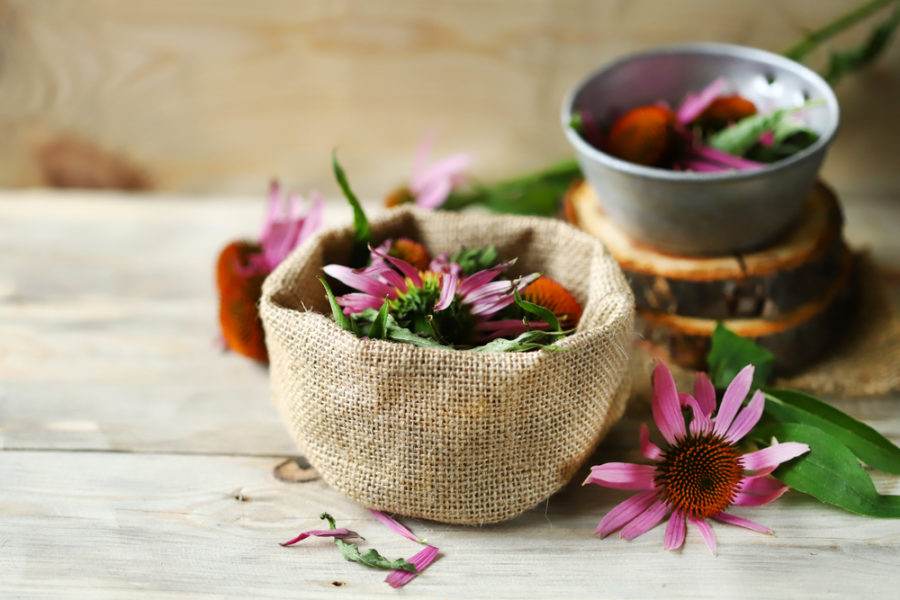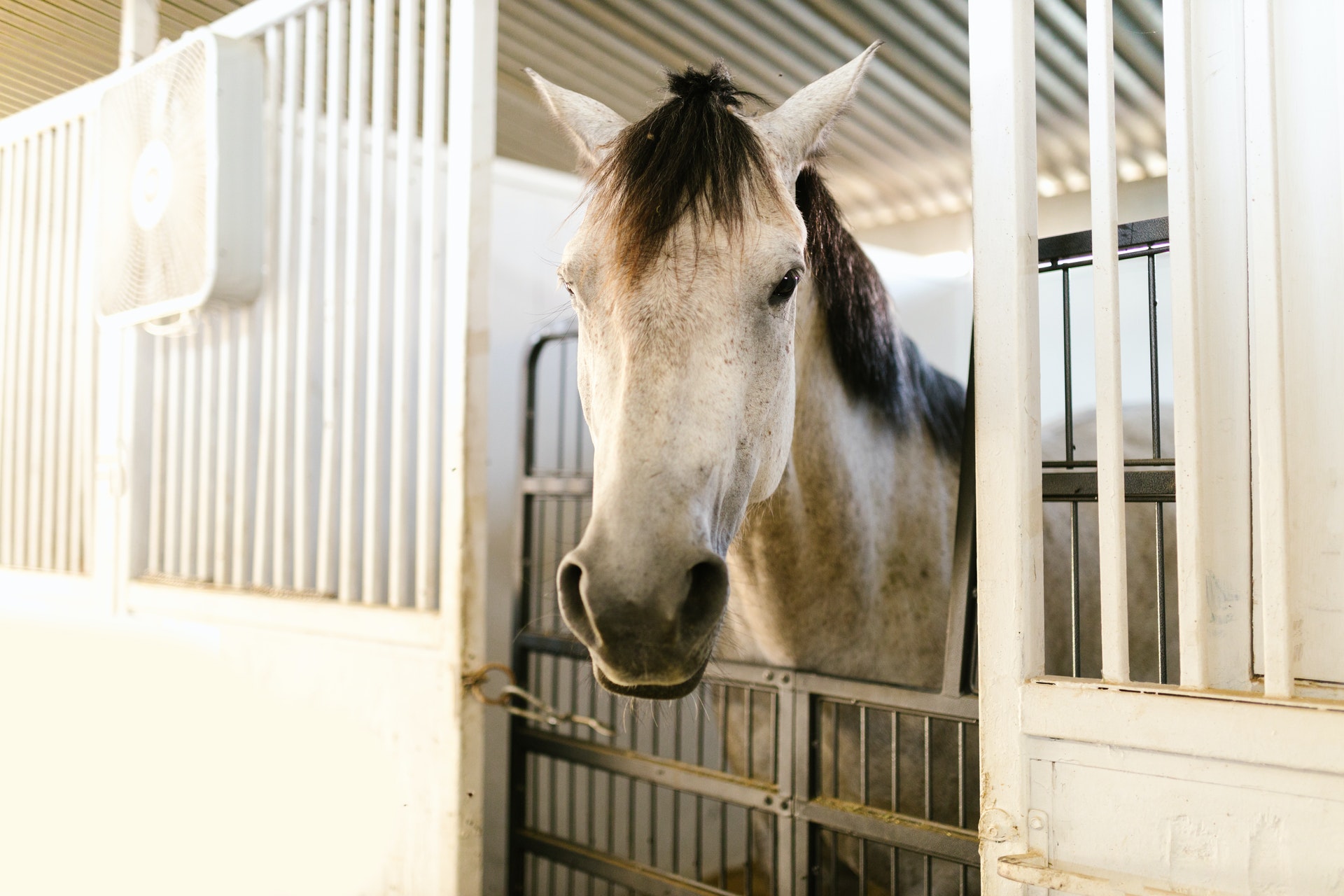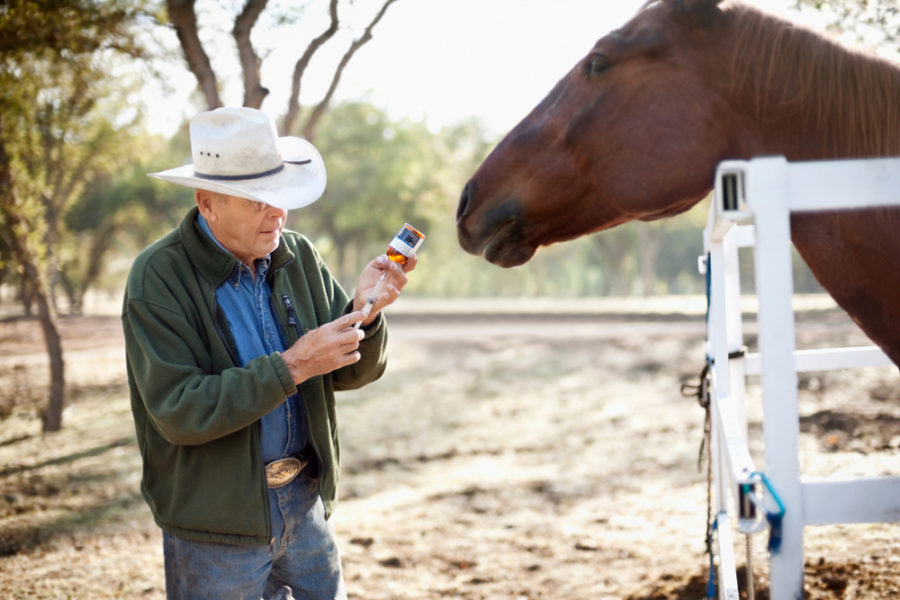There are several herbs that can be utilized as a natural way to boost equine immunity, and many of them also offer additional health benefits!
Herbal remedies have been around for many thousands of years and continue to be used widely in both human and animal medicine. The use of herbal extracts from plant sources (leaves, roots or flowers) is deemed an ‘alternative’ medicine, however when used carefully, may be a useful adjunct to other pharmacological (drug) therapy. Care must be taken to avoid reactions between some herbs and commonly drugs used for our equine patients.
It is important to note that reliable scientific research into the effectiveness and safety of herbal medicines/supplements is limited, especially in equine species. Evidence to support the use of herbs is often anecdotal, or based on single studies, and therefore any conclusions about their use should be interpreted with caution.
Below is an overview of some herbs with evidence to support their use for optimizing equine immunity, however the herbs listed may also have other wider health benefits. Antioxidants, for instance, reduce stress on immune cells – herbs with antioxidant effects include ginseng, ginger, garlic, flaxseed, echinacea, evening primrose, lavender, rose hip, aloe vera, cranberry, yucca and milk thistle.
Ginseng
In addition to the antioxidant properties outlined above, ginseng can also stimulate lymphocyte function. Lymphocytes are white blood cells which produce antibodies to fight infection by attacking invading bacteria, viruses and toxins. Lymphocytes can also destroy unhealthy or abnormal cells which, for example, have been taken over by a virus or become cancerous. It should be noted that there are limited equine-specific studies published on the benefits of ginseng, and research is largely taken from human and laboratory animal studies.
One equine study however, demonstrated an increased antibody response to vaccination when ginseng was fed at 35mg per kg bodyweight for two weeks prior to and two weeks after equine herpesvirus-1 vaccination. Care should be taken using ginseng in horses which are already receiving non-steroidal anti-inflammatories e.g. phenylbutazone (‘bute’) as they can react with each other.
 Ginger
Ginger
Ginger contains substances which regulate energy balance within cells, and therefore promote normal cell functioning – in particular, immune cells involved in identifying and destroying cancerous cells. Ginger also has antioxidant effects. Ginger should be used cautiously in horses or ponies who are prone to gastric ulcers due to the potentially caustic effect of ginger on the gastrointestinal tract.
Garlic
Garlic contains the components allicin and ajoene which have been shown to have anti-bacterial, anti-viral, antifungal and antiparasitic properties – hence garlic’s role in supporting the immune system. It also has antioxidants and other immunomodulating effects. Despite its health benefits, garlic should not be fed ad libitum nor to excess in equine species, as it may cause adverse effects on their red blood cells resulting in anaemia.
Flaxseed
Although flaxseed is known to have antioxidant benefits, its use in horses receiving anti-ulcer supplementation or anti-ulcer medication should be avoided, as these horses may be at an increased risk of flaxseed-induced cyanide poisoning. This is due to the stomach’s reduced ability to inactivate potentially toxic cyanide enzymes which may be present in the seeds.
Echinacea
This herb has been shown to effectively stimulate the equine immune system in a number of different ways. Echinacea stimulates cell-signaling molecules which allow for a coordinated immune response. This includes stimulating the signaling pathways which allow white blood cells to leave the bloodstream and enter any affected tissues. Echinacea improves the ability of these neutrophils to consume and destroy foreign phorses, therefore improving a horse’s defense against opportunistic pathogens. Echinacea also improves lymphocyte function (see above). Echinacea should be fed at a dose of 1000mg per day for at least 5–6 weeks and is most useful if fed in the early stages of illness or infection.
Evening primrose
The essential oil of primrose contains essential fatty acids which are converted into hormones by cell enzymes. These hormones have important roles across many body systems, including maintaining immune system function. Primrose oil also contains several potent antioxidants.
Lavender
Lavender may have some antibacterial effect when used topically, e.g. on the skin. It is also believed to have some antioxidant properties. Studies into the effect of lavender in horses are limited.
Rose hip
Rose hip powder fed at 210 grams daily can increase the level of serum vitamin C, which is a known antioxidant and can therefore indirectly support immune system function.
Aloe vera
Aloe vera is another herb which has antioxidant properties, but it must not be fed to pregnant mares as it may stimulate contraction of the uterus and increase the risk of losing a foal.
Cranberry
Cranberry is again rich in vitamin C, and therefore another useful antioxidant.
Yucca
Yucca has anti-bacterial and anti-fungal properties, and as well as antioxidant benefits, has the potential to increase antibody levels as it contains high levels of a component called saponins.
Milk thistle
Milk thistle is most commonly known in the equine world for its anti-inflammatory benefits for horses with liver disease, however its antioxidant properties will also help to support a healthy immune system.




